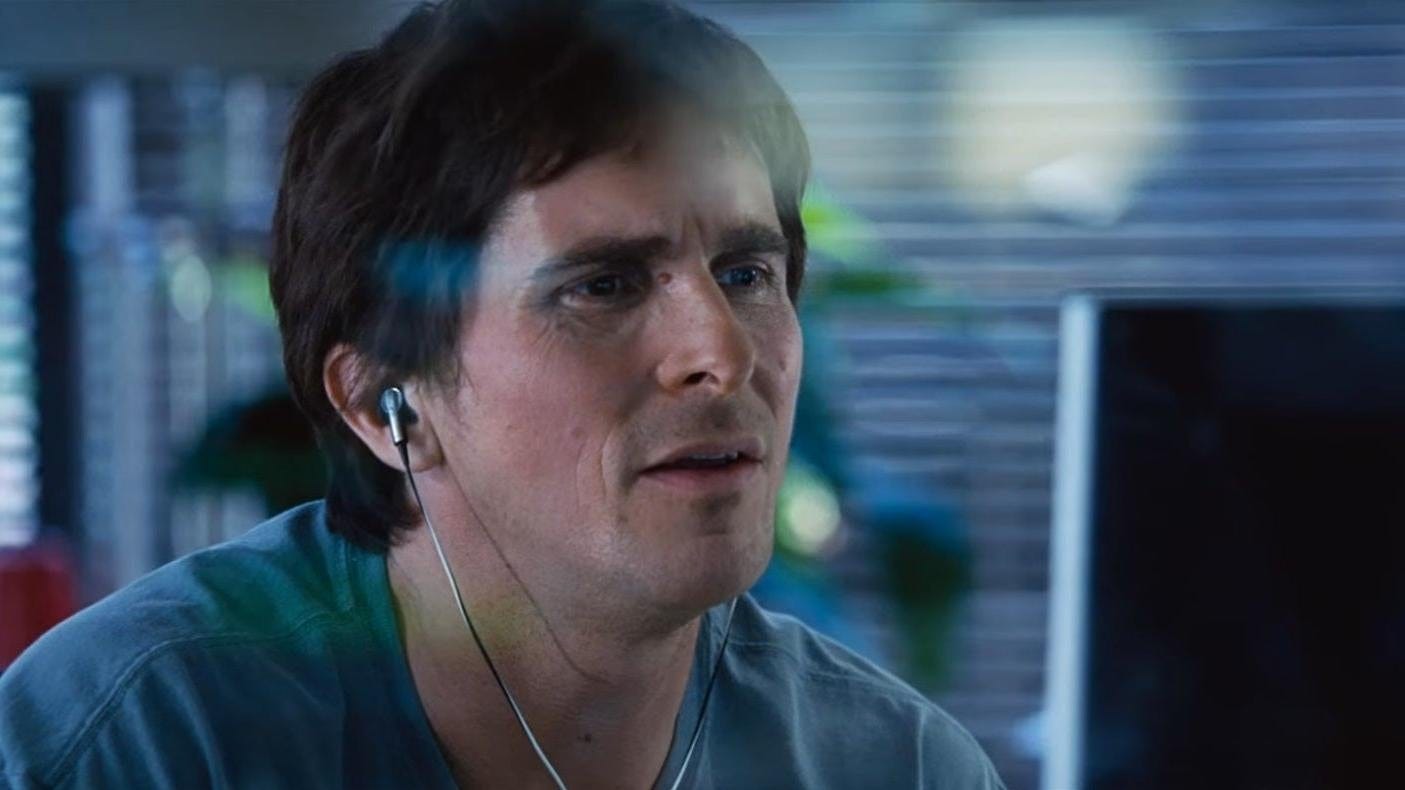Startup stories from the last seven days
What you might have missed last week on Caffeine.
Welcome to Monday!
As always, we’re recapping a few of our favourite stories from the last week. There’s plenty of good stuff happening in the startup world, and these are all well worth knowing!
Have a great start to your week,
Nick and the Caffeine team
Brittany Fox: Lessons from a 10-day raise and the future of AI marketing
When Brittany Fox opened her seed round for Nevam, she didn’t expect to close it in just 10 days. But that’s exactly what happened.
Nevam is an emerging martech startup building a digital twin for marketing - a system that mirrors an organisation’s marketing ecosystem in real time. It helps teams test smarter, optimise faster and make confident marketing decisions by using AI to simulate how campaigns will perform before they go live.
We talked about what the raise taught her, advice for fellow founders, and the path ahead for Nevam.
You closed a $1.2m round in just 10 days. What did that process teach you?
“That you need to think very fast.
“I went out with one goal - to bring one venture capital firm on board. I targeted Previously Unavailable because of their martech focus. Once they were interested, introductions started rolling in, including to the Huljich family and angels. Within days, multiple investors wanted in, and by the end of the week, the round was effectively filled.
“The speed surprised me. There’s a narrative of VC funding being a slow process, and it can be if you’re not prepared. But once momentum builds, you have to keep up.”
You’ve spoken about being in the 1.5% of VC funding that goes to female founders. What made your approach different?
“Preparation. You’ve got to have your ducks in a row. If you don’t have your traction, numbers, or confidence sorted, those early conversations will fizzle. Investors move quickly once they’re convinced, and if you can’t match their pace, the opportunity passes.
“Confidence was huge for me too. By the time I’d met my investors I felt so confident in what I was building, I had wind in my sales and validation that I’d hit a problem and I’d figured out I was on the right track with a solution, I felt positive about what I was doing.”
What’s your advice for founders preparing to talk to VCs?
“Don’t underestimate what the coffee catch-up really is.
“If you go in unprepared - unclear on what you want, how much you’re raising, or what kind of partner you need - you’ll walk away feeling deflated. I learned that the hard way. Investors will ask sharp questions that make you second-guess yourself if you’re not ready.
“I missed a lot of opportunities because I had coffee catch-ups too early. It’s not just a casual conversation - they ask deep questions that can be hard to answer, so you can end up feeling stuck and doubting yourself. It puts you 10 steps back because you think you have to recalibrate.
“So be strategic. Don’t take those meetings until you’ve built something tangible. You want to walk in saying, ‘I’m building a rocket ship. Want to jump on? Because this is your last chance.’”
You waited several months to announce your raise. Why?
“Closing the round wasn’t the finish line - it was the start of a new phase. We effectively treated the raise like a marketing campaign.
“The deal was done in May, but we waited to announce it in September. I wanted to make it matter. For us, it wasn’t just about saying, “We raised $1.2 million”, it was about using that moment to build visibility, generate leads and establish credibility with enterprise clients.
“We aligned the announcement with South by Southwest Sydney, where Nevam had a strong presence. We created media attention and built a wave of attention right when the industry was paying attention.”
Where do you see the biggest opportunity for Nevam?
“Most marketing tools are built vertically, solving a narrow problem. The real opportunity is in horizontal SaaS - tools that support how entire teams operate and make decisions.
“With Nevam’s digital twin, businesses can predict how campaigns will perform and fix problems before they happen. It turns marketing from reactive to proactive.
“I believe digital twins will be standard in marketing operations in 18 months to two years. They’ll fundamentally change how businesses measure, plan and optimise performance.”
Worklibrary launches AI legal assistant: In-house lawyers, sit up and take notice. Bootstrapped NZ startup Worklibrary has released its fully autonomous AI legal assistant that promises to remove 30% of your interruptions.
It takes five minutes to set up and can operate as a Slack or Teams channel, or on email, where individuals can go straight to the AI with questions, and it can sift through policies, playbooks, templates etc. to provide answers on the spot or escalate to the right team member if it’s more complex.
Founder and CEO Hayden Mazengarb says “It’s like having a dedicated 24/7 team member who knows your company inside-out, handles all the intake, and only brings you matters that actually need your judgment. This saves hours of manual triage, interruptions, and context switching and lets your team focus on actual value-adding work.”
It feels like this is the kind of product that could easily apply to all sorts of departments, work streams, business leaders etc.. I’m a sucker for sending a “hey, quick question…” message, and the idea of getting an immediate response without interrupting someone else is a game-changer.
The Easiest (and Hardest) Places to Hire Freelancers and How New Zealand Stacks Up
Most stories we cover here at Caffeine are, fundamentally, about identifying a universal problem and the people creating a thriving business by providing the solution.
In our second partner series with Remote, the problem in question is clear: The world has never had more people ready to work for themselves, yet hiring them across borders has also never been more complicated.
For startups, especially Kiwi ones living that mantra of ‘go global from day one’, freelancers have become an essential growth lever.
They bring flexibility, affordability, and access to global skillsets once out of reach. But behind the promise of ‘hire anyone, anywhere’ lies a mess of regulations that differ in every country, and a single mistake in classification can cost founders dearly.
Remote’s recent Global Workforce Report 2025 found that 73% of business leaders globally have faced compliance challenges when hiring in another country. Of that number, 51% were engaging talent as an independent contractor or freelancer.
“It’s unfortunate,” says Nick Martin, APAC GTM Lead at Remote. “Modern tools have made it easy for people to work anywhere. But the regulation and legislation haven’t changed at the same pace to make it easy for companies to hire them.”
This is one of the global pain points which inspired Remote, the company Job van der Voort co-founded with Marcelo Lebre in January 2019. Their mission was straightforward but ambitious: to open the world for every person, business, and country by removing the obstacles that prevent companies from hiring globally.
For Remote, solving for this particular obstacle starts with something deceptively simple: what even counts as a “freelancer”?
“Every government has built its own definition of what makes someone a freelancer versus a contractor, and none of them agree,” says Martin.
“Some focus on who sets the hours or who owns the tools. Others look at tax residency or payment frequency. The result can be a headache for founders. What counts as a freelancer in New Zealand might count as a full-time employee in France.”
In practice, that means a Kiwi founder hiring a freelance developer in Berlin or a designer in São Paulo is stepping into a legal minefield, and mistakes can result in penalties and fines.
With this in mind, where are the easiest (and hardest) countries to hire freelancers?
“The easiest markets to hire freelancers share a few traits: transparent tax regimes, clear worker classification standards, and efficient banking infrastructure,” says Martin. “Countries like the United Kingdom, Canada, Australia and, luckily, New Zealand score well on all three. Contractors are recognised as independent businesses, payment systems are stable, and local compliance requirements are well defined.”
By contrast, markets like Germany and Spain remain challenging, where authorities frequently reclassify freelancers as employees under “false self-employment” rules. In those countries, companies risk back-paying years of benefits and taxes, or even being hit with penalties worth tens of thousands of dollars for a single misstep.
“The EU is tightening these definitions even further,” Martin adds. “The intent is good, we all want to protect workers, but it makes hiring across borders extremely high-stakes for small businesses.”
That tension has given rise to a new generation of platforms designed to shoulder those risks. Remote’s Contractor Management and Contractor of Record products provide the infrastructure to stay compliant when hiring and onboarding freelancers. This covers complexities like insurance coverage tax benefits, payments in local currency, and ensuring people get paid on time.
For HomeProject, a Norwegian company that runs crowdsourcing projects, this was a major challenge given they hire over 400 contractors and need payouts in different currencies.
Erik Sveen, founder and CEO of HomeProject, said, “We work with 460+ contractors. I’d need to employ 5 or 6 people full time to keep on top of compliance, manage individual invoices, work with accountancy firms and make payments in multiple currencies. Remote has definitely been a timesaver and a money saver for us in providing a summary of the total invoiced amount each month. I pay in one currency and contractors have the flexibility to choose what currency they want to have in their account. That means we’re avoiding a lot of transaction and foreign currency fees, while paying our contractors the ways they want to be paid.”
Cecilia Nilsson-Martin, a contractor at The Home Project, gave her perspective on using Remote: “The freedom of being a freelancer is more important than anything else for me. I could never go back. Working with a client that uses Remote is more secure as a contractor because of all the checks and compliance from both sides. And everything is so simple: from agreeing to the contract, to raising invoices and getting paid in the currency I want, everything is in one place. It’s also easy to pull your own records for bookkeeping, which saves me so much time.”
New Zealand’s position in this landscape is relatively strong. Our country’s tax system and freelancer rules are among the clearest in the world, and its workforce has embraced independent contracting at pace. But the moment Kiwi companies look offshore, the complexity multiplies.
“The real scarcity New Zealand founders face isn’t capital - it’s time,” says Martin, Remote’s APAC GTM Lead. “You can’t manage five currencies, three legal systems and ten invoices manually forever. That’s where tools like ours step in.”
For a new generation of founders, freelancers aren’t there to paper over cracks, they’re a core part of the team. That demands systems built for both speed and trust.
“The future of work isn’t one model or the other,” Martin says. “It’s being able to easily hire both employees and freelancers to suit your particular needs but all managed under one roof.”
That’s the long-term vision Remote is chasing: a unified global employment infrastructure that makes compliance invisible, payments instantaneous, and opportunity universal.
For founders in New Zealand, the world is at a doorstep but accessing it is far from frictionless. Freelancers can unlock growth, speed and scale, but only if the foundations are right.
“The best talent might live a hemisphere away,” Martin says. “The question isn’t whether you can hire them. It’s whether you can do it without your infrastructure collapsing under the paperwork.”
And that’s the future Remote is building toward, where hiring across the world feels as simple and compliant as hiring across the street.
Markets react to “Big Short guy” predicting AI bubble: This might be entirely predictable but I find the knee-jerk reaction an interesting case study in human behaviour. You’ve probably seen the news that investor Michael Burry, portrayed by Christian Bale in the movie The Big Short as he predicted the GFC crash, has gone in with a similar $1b+ bet against what he calls an “AI bubble”.
As we’ve reported previously, he’s not the first to pick holes in the way the AI world is developing, but his track record certainly adds weight to the argument. The markets tend to agree (for now), with the Nasdaq and the S&P 500 taking their largest one-day percentage drop in almost a month, and all of the “magnificent seven” AI companies down for the day. Burry took particular aim at Nvidia and data analytics company Palantir; the latter ended up down almost 8% for the day, despite having raised its revenue outlook the day prior.
It’s all a bit cut and thrust, but what’s the bet it’ll be fish and chip paper tomorrow and everyone bounces back until the next time someone prominent pipes up with concerns. Or, the predictions turn out to be right…eek.
Want to get in touch with a news tip, a slice of feedback or just to chat? Email hello@caffeinedaily.co








